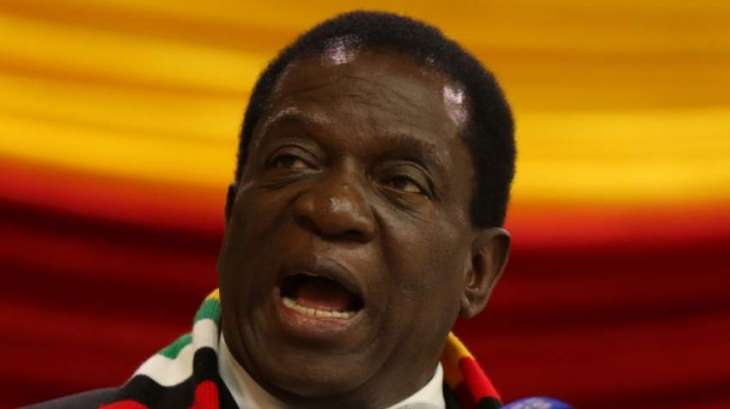Zimbabwean President Emmerson Mnangagwa on Monday urged his nation to leave elections behind and focus efforts on rebuilding the country's economy.
MOSCOW (Pakistan Point News / Sputnik - 14th August, 2018) Zimbabwean President Emmerson Mnangagwa on Monday urged his nation to leave elections behind and focus efforts on rebuilding the country's economy.
In the July 30 elections, the ruling Zimbabwe African National Union - Patriotic Front (ZANU-PF) secured an absolute majority in the National Assembly with 144 seats and the partys presidential candidate, Emmerson Mnangagwa, was elected to the post. Once the election results were released, opposition supporters took to the streets of Harare to protest the results, which resulted in the death of six of the protesters. On Friday, the MDC Alliance, the main opposition coalition in Zimbabwe, filed a case in the country's Constitutional Court, challenging general election results.
"It is now time to put the elections period behind us and embrace the future. The task facing us today is a great one let us unite as Zimbabweans revive our economy and rebuild our great nation," Mnangagwa said, addressing the nation during Heroes' Day celebrations in Harare, as quoted by the Dispatchlive news outlet.
Since the 2000s, Zimbabwe has been under sanctions imposed by the United States and the European Union over violations of human rights and democratic norms under the presidency of former leader Robert Mugabe. The restrictions had resulted in a collapse of foreign loans and investments in the economy of the African nation.
The situation started changing in November, when Emmerson Mnangagwa, Zimbabwes former vice president, was sworn in as president. The inauguration took place after the army deployed its vehicles to Harare and confined Mugabe to his house. The Zimbabwean parliament subsequently approved Mugabe's impeachment, after which the long-serving leader stepped down.
Zimbabwe is classified as a low-income country and still has outstanding loans to some international institutions, including the African Development Bank and the World Bank. One of Mnangagwa's pre-election promises was to project the country as a middle-income economy by 2030.
A middle-income economy status by 2030 is an achievable long-term objective, Godfrey Kanyenze, director of the the Labour and Economic Development Research Institute of Zimbabwe (LEDRIZ), a research think-tank of the Zimbabwe Congress of Trade Unions (ZCTU), told Sputnik.
"In fact, it may not be ambitious enough given that Zimbabwes per capita GDP is just over $1,000," he noted.
The World Bank classifies economies having a per capita gross national income between $1,026 and $12,475 per year as middle-income ones.
Kanyenze noted that almost all the key political parties in the country have very similar economic policies that define the opportunities for economic growth.
"[They are] characterized by: re-engagement based on arrears clearance and the implementation of structural reforms involving the public and public enterprise sectors; accelerating ease of doing business reforms, including fighting corruption; leveraging productivity and production across all sectors of the economy; rehabilitating the dilapidated infrastructure (enablers) and institutions; leveraging the resource sectors (agriculture, mining and tourism) as the basis for recovery and re-industrialization," he said.
The key challenge that Mnangagwa has to deal with is a lack of cohesion and a highly polarized society, the analyst noted.
"He has to bring everyone together to embrace his vision and work in concert for a common purpose. It is important to note that Zimbabwe is a broken country that needs mending, and this is the first challenge that has to be addressed, otherwise everything else will fail on this hurdle," he explained.
Kanyenze also pointed to the initiatives proposed by LEDRIZ that envisage arrears clearance and debt resolution, as well as promoting structural transformation, which includes transition commercialization, formalization and re-industrialization of the economy.




